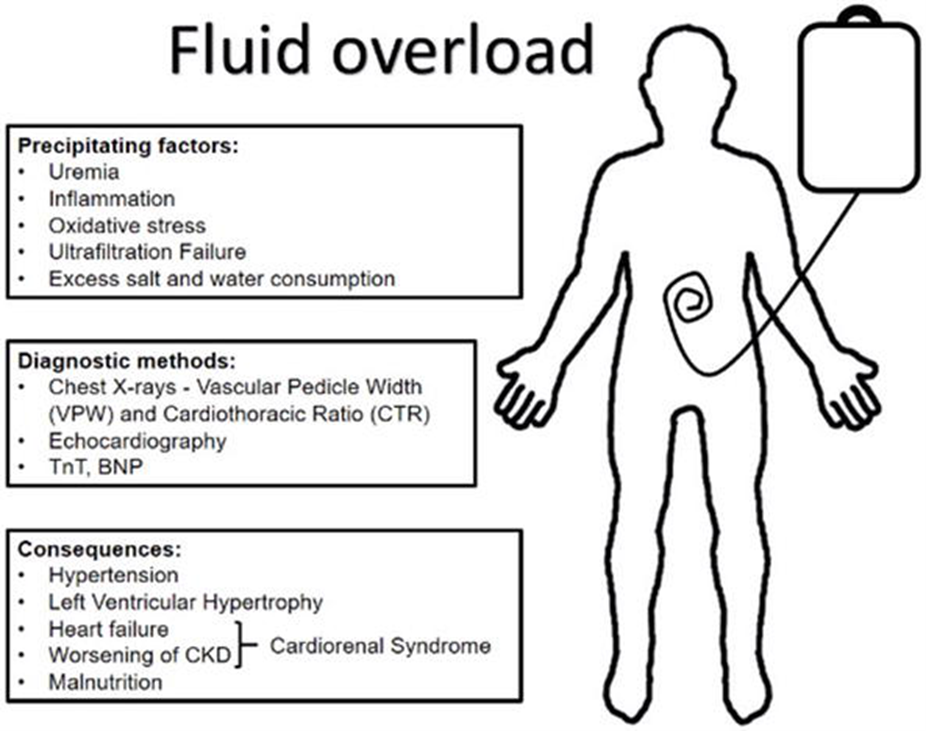A client is receiving IV fluids at 150 mL/hr. Which of the following findings indicates that the client is experiencing fluid overload?
Oliguria
Bradycardia
Dyspnea
Poor skin turgor
The Correct Answer is C
A. Oliguria. This is incorrect because oliguria, or decreased urine output, is a sign of fluid volume deficit, not fluid volume overload.
B. Bradycardia. This is incorrect because bradycardia, or slow heart rate, is not a typical sign of fluid volume overload, unless the client has a cardiac condition that affects the heart's response to fluid overload.
C. Dyspnea. This is correct because dyspnea, or difficulty breathing, is a common sign of fluid volume overload, as excess fluid accumulates in the lungs and impairs gas exchange.
D. Poor skin turgor. This is incorrect because poor skin turgor, or decreased elasticity of the skin, is a sign of dehydration, not fluid volume overload.

Nursing Test Bank
Naxlex Comprehensive Predictor Exams
Related Questions
Correct Answer is C
Explanation
A. February 1 is not the correct EDB according to Nägele's rule. Nägele's rule states that to estimate the EDB, subtract three months from the LMP and add seven days and one year. Therefore, May 8 minus three months is February 8, plus seven days is February 15, plus one year is February 15 of the following year.
B. February 8 is not the correct EDB according to Nägele's rule. Nägele's rule states that to estimate the EDB, subtract three months from the LMP and add seven days and one year. Therefore, May 8 minus three months is February 8, plus seven days is February 15, minus seven days is February 8, plus one year is February 8 of the following year.
C. February 15 is the correct EDB according to Nägele's rule. Nägele's rule states that to estimate the EDB, subtract three months from the LMP and add seven days and one year. Therefore, May 8 minus three months is February 8, plus seven days is February 15, plus one year is February 15 of the following year.
D. February 22 is not the correct EDB according to Nägele's rule. Nägele's rule states that to estimate the EDB, subtract three months from the LMP and add seven days and one year. Therefore, May 8 minus three months is February 8, plus seven days is February 15, plus seven days is February 22, plus one year is February 22 of the following year.
Correct Answer is A
Explanation
A. Borderline personality disorder is characterized by a pervasive pattern of instability in interpersonal relationships, self-image, and affect, as well as marked impulsivity and recurrent suicidal behavior. The client's history of seeking counseling for relationship problems and self-inflicted lacerations are consistent with this disorder. Therefore, this choice is correct.
B. Antisocial personality disorder is characterized by a disregard for and violation of the rights of others, as well as a lack of remorse for one's actions. The client's behavior does not indicate this disorder. Therefore, this choice is incorrect.
C. Histrionic personality disorder is characterized by excessive emotionality and attention-seeking behavior, as well as a tendency to dramatize situations and exaggerate emotions. The client's behavior does not indicate this disorder. Therefore, this choice is incorrect.
D. Paranoid personality disorder is characterized by a pervasive distrust and suspiciousness of others, as well as a tendency to interpret others' motives as malevolent. The client's behavior does not indicate this disorder. Therefore, this choice is incorrect.
Whether you are a student looking to ace your exams or a practicing nurse seeking to enhance your expertise , our nursing education contents will empower you with the confidence and competence to make a difference in the lives of patients and become a respected leader in the healthcare field.
Visit Naxlex, invest in your future and unlock endless possibilities with our unparalleled nursing education contents today
Report Wrong Answer on the Current Question
Do you disagree with the answer? If yes, what is your expected answer? Explain.
Kindly be descriptive with the issue you are facing.
